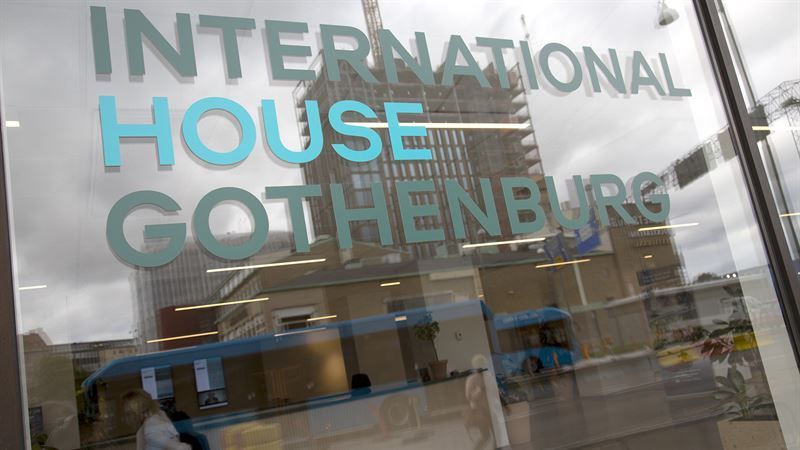International House Gothenburg was officially inaugurated. The new meeting place is a one-stop shop for newly arrived internationals and set to become an important success factor for the region’s businesses in the global competition for talent.
At Järntorget, in central Gothenburg, the city has gathered all relevant services for people who come here from other countries to research, study and work, under the one roof.
The new International House Gothenburg is co-located with the newly opened State Service Centre (Statens servicecenter), where new internationals can take care of essential contact with the Swedish Tax Agency, the Swedish Pensions Agency and the social insurance agency Försäkringskassan – and for example obtain a personal number and identity card.
From there, international professionals, researchers, students and their families can book a meeting at the International House Gothenburg where they can get info, guidance and advice on practical matters, including finding accommodation and schools and preschools, understanding the local labour market, tips on educational courses and programmes, and the region’s offering of social and professional networks.
“It feels great that we can help our new talents to establish themselves in the Gothenburg region and into Swedish society even more easily. I am convinced that International House Gothenburg will prove to be an incredible success factor in the competition for talent, that we experience is getting stronger with each passing day,” says Patrik Andersson, CEO of Business Region Göteborg.
Have already helped 250 people
Apart from advisory services and career support, International House Gothenburg arranges events and activities – around 30 will be held during the autumn – that also provide opportunities to make new contacts.
The themes and topics range from Swedish culture and business culture to how to buy a house in Sweden and the region’s offering of things to do and see. The new centre also holds courses and workshops on, for example, writing CVs, networking, navigating the Swedish labour market, and where and how people can learn Swedish.
“We moved in in April this year and have been operating digitally since then. So far, we have assisted in different ways around 250 people. This highlights the great need that we meet, from people who the region’s employers require and have positions for, but don’t have the possibility to fully support,” says Andreas Göthberg, head of foreign direct investment at Business Region Göteborg.
Growing demand for early support
The support from International House Gothenburg can be especially valuable for accompanying partners and for softer matters that affect families in general. International master’s students who want to remain and establish themselves in the region can also get help that can be difficult to find elsewhere.
International House Gothenburg also provides general advisory services that suit people who are based elsewhere but are planning to move to Sweden and the Gothenburg region.
“The first contact takes place earlier now, during the pandemic. People are finding us digitally, before they have arrived here. We can give advice earlier and, in that way, avoid things occurring in the wrong order. But that we can now welcome people physically feels great, like a milestone,” says Andreas Göthberg.
International House Gothenburg is run by the City of Gothenburg, through Business Region Göteborg in collaboration with the Labour Market and Adult Education Committee (Arbvux), which among other things handles language courses, adult education and validation of foreign qualifications. International House Gothenburg is co-financed by Region Västra Götaland. Arbetsförmedlingen, the Swedish Employment Agency, offers an international service via a EURES advisor, who is on location several days a week.
The new centre builds upon parts of Move to Gothenburg’s operations, an initiative that during the past five years has developed the region’s work to attract, welcome and retain international talent.
“Seeing several years of purposeful collaboration between industry, academia, cities and the region result in the inauguration of International House Gothenburg is fantastic – and incredibly important for employers here to be able to recruit the skills they need,” says Niklas Delersjö, head of Move to Gothenburg.
Around 10,000 people arrive in the Gothenburg region each year who can benefit from this type of help, according to estimates based on statistics from Statistics Sweden. But this number could grow significantly as the need for certain competence is great.
“Despite high unemployment, we are seeing the largest skills shortage in Europe in 15 years. The fact that we now have tools to both attract and receive international talent is crucial for us to compete with other regions in Europe and the rest of the world,” says Niklas Delersjö.







